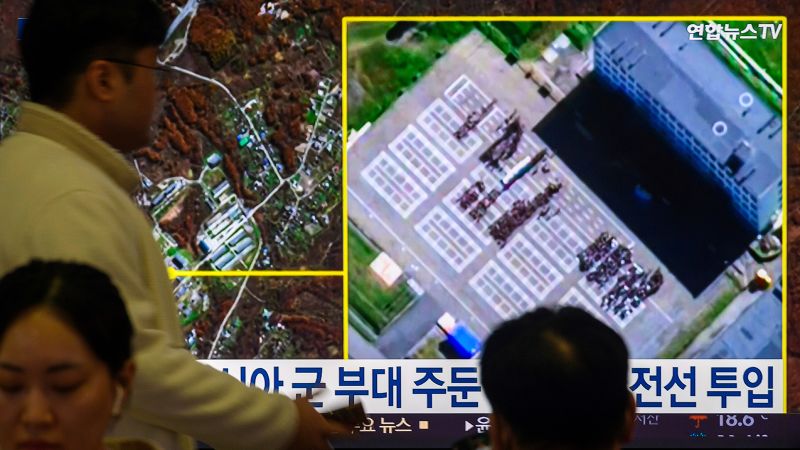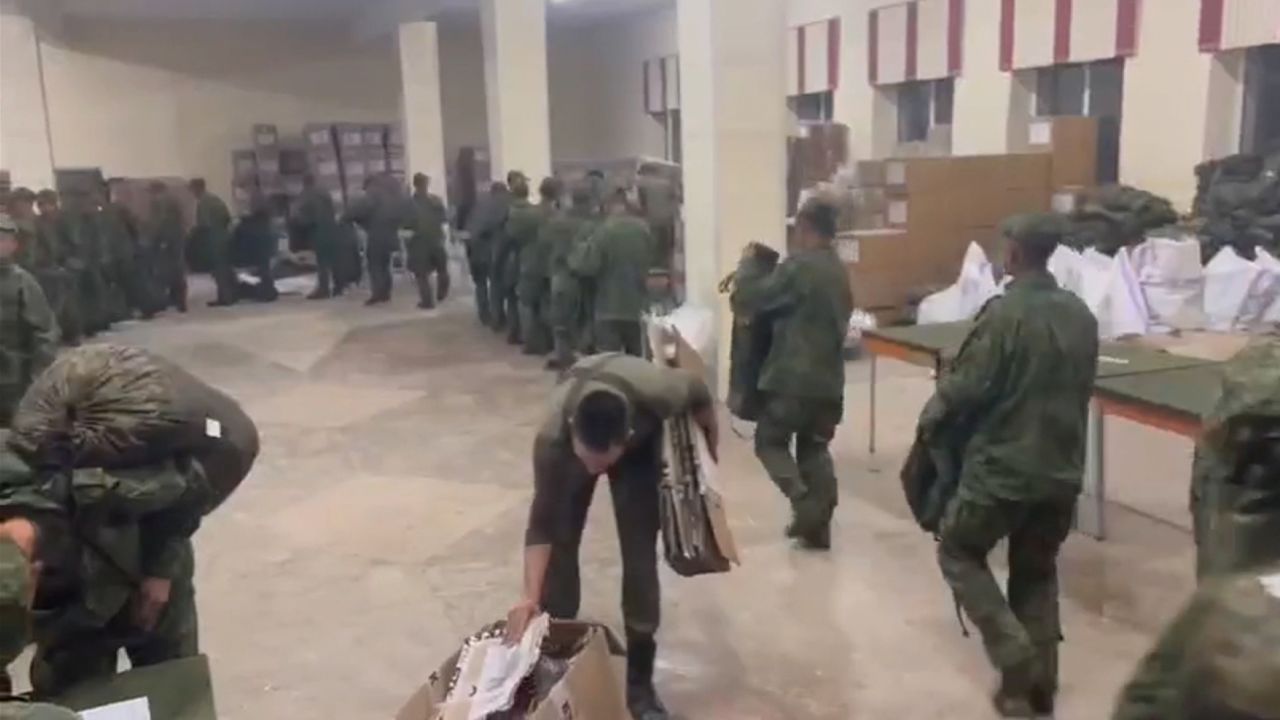
Seoul, South Korea
CNN
—
North Korean soldiers may be ready to move to the front lines of Russia’s war against Ukraine after learning basic Russian commands, South Korean lawmakers told reporters on Tuesday, citing the country’s intelligence officials.
About 10,000 North Korean soldiers are receiving military training in eastern Russia, according to Pentagon estimates on Monday, compared to a previous White House estimate of 3,000 soldiers.
Lawmakers Lee Seung-kwon and Park Sun-won, who were briefed on the matter, said South Korea’s National Intelligence Service was now monitoring the possibility of “some North Korean personnel, including high-ranking military officials, moving to the front lines.” By the National Intelligence Service during a closed meeting of the Parliamentary Intelligence Committee.
The lawmakers said Russia teaches North Korean soldiers about 100 basic military words such as “fire” and “in position.”
However, they added, it is clear that North Korean soldiers have difficulty communicating, and it is not clear whether they will be able to bridge the language gap.
North Korea has also beefed up its security measures – whether to protect its dictator Kim Jong Un or to prevent news of the deployment of North Korean forces in Russia from spreading within the impoverished and highly isolated country.
To that end, North Korean officers involved in Russian efforts are banned from using phones, while families of soldiers are told that their loved ones are simply participating in “military exercises,” the lawmakers said.

A video shows North Korean soldiers receiving uniforms and equipment at the Russian training base
Despite these measures, news has spread within North Korea about the deployment of troops in Russia, sparking “unrest” in some parts of the country, the lawmakers said.
They added that some residents and soldiers expressed concerns about the possibility of being sent to Russia themselves, while others wondered why they would be sacrificed for another country.
Last week, Ukraine intercepted Russian broadcast channels and released an audio recording, in which Russian soldiers were heard speaking disdainfully about incoming North Korean soldiers, calling them “K Battalion” and referring to them as “the damned king of China.”
The recordings also reveal plans to provide one translator and three senior officers for every 30 North Korean men, something Russian soldiers are heard on audio condemning.
“The only thing I don’t understand is that there is [should be] Three senior officers for 30 people. Where do we get it? “We’ll have to pull them out,” says one Russian soldier.
This may be the first time that North Korea has made a major intervention in an international conflict. North Korea has one of the largest armies in the world, numbering 1.2 million soldiers, but most of its forces lack combat experience.
The Kremlin had initially denied allegations of the deployment of North Korean troops, but at the BRICS summit in Russia last week, President Vladimir Putin did not deny that Pyongyang had sent soldiers into the country.
North Korean state media said on Friday that any deployment of troops in Russia to assist in the war in Ukraine would comply with international law, without explicitly confirming this presence. North Korea had previously denied such reports.
North Korean Foreign Minister Choe Son Hui is now visiting Russia on her second visit there in six weeks, after leaving Pyongyang on Monday. Lawmakers told reporters that she likely traveled to discuss the possibility of sending more North Korean troops — and what Pyongyang would get in return.
The news also comes as South Korea’s foreign and defense ministers head to Washington to speak with their counterparts Secretary of State Antony Blinken and Defense Secretary Lloyd Austin for an annual ministerial meeting.

“Travel specialist. Typical social media scholar. Friend of animals everywhere. Freelance zombie ninja. Twitter buff.”





More Stories
Taiwan is preparing to face strong Typhoon Kung-ri
Israel orders residents of Baalbek, eastern Lebanon, to evacuate
Zelensky: North Korean forces are pushing the war with Russia “beyond the borders”